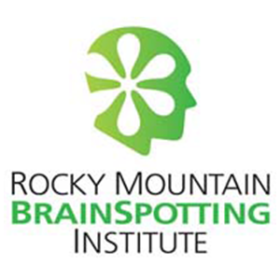"Where you look affects how you feel"
- David Grand, PhD
I’m a proud board member of the Rocky Mountain Brainspotting Institute started by lead U.S. trainer, Dr. Pie Frey, and I’m a Brainspotting Consultant who trains fellow Brainspotting therapists enabling them to be certified in this healing modality.
What is Brainspotting?
Brainspotting is a powerful and effective method of identifying, processing, and releasing various types of trauma. It can be utilized in combination with talk therapy or as a stand-alone healing method. I have been astonished at the deep level of healing that clients have achieved in a relatively brief amount of time utilizing Brainspotting.
Traumatic events can overwhelm the brain and leave behind unprocessed traumatic impressions that manifest as psychological or emotional problems in a person’s life. Brainspotting allows a trained therapist to utilize a client’s field of vision to discover specific spots in the brain where trauma is being held. Once a ‘brainspot’ is identified, deep processing acts to release and resolve the unprocessed traumatic impression.
Brainspotting does not remove memories of traumatic life events; it safely and effectively diminishes the negative feelings associated with the events. Minor traumas can often be addressed and healed in a couple of sessions, whereas more complex traumas may require numerous sessions to resolve.
Who can benefit from Brainspotting therapy?
Brainspotting was discovered in 2003 by David Grand, Ph.D, and is practiced by thousands of therapists all over the world. The power and rapid effectiveness of this technique comes from the combination of two relationships: the relationship between the therapist and client held in dual-attunement, and the strength of the brain-and-body-based modality. Brainspotting is a gentle therapy that is suitable for anyone, and it is very helpful in treating a wide variety of conditions such as:
Anxiety and Panic Attacks
Grief and Loss
Creativity, Sports, and Performance Enhancement
Preparation and Recovery from Surgery
Recovery From Injury & Accident Trauma
Depression
Physical and Emotional Trauma
Phobias
Fear of the Dentist
Fear of Public Speaking
Fear of Flying
Performance Anxiety
Sexual Abuse and Trauma
Chronic Pain Conditions
Negative Self Talk
Please visit these helpful links for more information:
Brooke Randolph writes about what a Brainspotting session looks like
https://brooke-randolph.com/blog/what-does-brainspotting-look-like/
Dr. David Grand
http://www.brainspotting.com/
Rocky Mountain Brainspotting Institute
http://rockymountainbrainspottinginstitute.com/
Veterans Affairs website: Effects of PTSD https://www.ptsd.va.gov/family/effects_ptsd.asp
To explore more about what Brainspotting can do for you, please contact me for a free 20-minute consultation.





